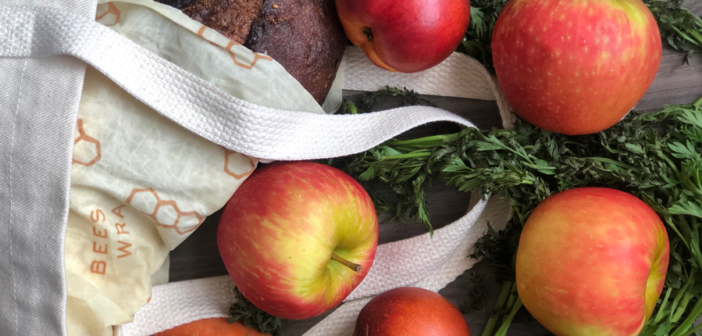- Make a grocery list: You don’t have to be a hardcore meal planner, but keeping track of which foods you need and roughly planning your meals can help you avoid buying too much. Using your grocery list as a limiter can also help you avoid buying more food than you need. If you have a list and stick to it, overbuying won’t be an issue.
- Watch serving sizes: In the grocery store, pay attention to how many servings are in each package and think about how many servings you’re really going to eat. If you’re not going to eat 5 servings of eggs before they expire, then you should look for a smaller package of eggs. Buying perishable foods in smaller packages means you’ll be more likely to eat the food before it goes bad.
- Be a creative cook: If you cook your own food, using all your cooking scraps can keep food out of the garbage. Cooking with leftover ingredients or scraps requires some creative thinking because you might need to combine ingredients that don’t often go together. Try searching online for recipes that incorporate the foods you have, or come up with an original creation.
- Don’t be afraid to go up for seconds: If you’re more of a Kaufman person than a grocery store person, then your solution to food waste could simply be putting less food on your plate. The key to grabbing less food is realizing that you can always grab more food but you can’t put food back on the buffet. If you want more food than you grabbed, simply go get more food.
- Compost whenever possible: There are compost bins in Kaufman and the Cage, so take advantage of those. When you’re not in these buildings, you could compost in your dorm, house or apartment. Many companies sell small compost bins that are perfect for single living, or you could convince your family or friends to start a bigger backyard compost heap.
- Save and eat leftovers: When you dine out, don’t forget to grab a box for your leftovers. However, grabbing a box is only the first step. You also have to make sure to store the leftovers properly and actually eat them. Most leftovers do best in the fridge and shouldn’t be left there for more than a day or two, so plan to eat your leftovers quickly.
- Don’t be overly strict with expiration dates: Many “expiration” dates are actually sell-by dates, which means that you can eat your food past the date on the package. Obviously, if your food starts to smell or taste funky, don’t risk eating it. Check out the USDA site for more specific recommendations.
- Don’t be afraid of food blemishes: Food is part of nature and nature isn’t perfect. This means that you shouldn’t be afraid of little brown spots on apples or multicolored patches on bell peppers. If you’re concerned about an imperfection on your food, cut it off conservatively or just eat around it.
- Keep your food organized: Channel your inner Marie Kondo by maintaining sight lines in your fridge and cabinets. This will make it easier to see all the foods you have, so you know which foods you need to use up and which foods you need to buy.
- Share extra food: Whether it’s your roommate, your significant other, your mom or someone in need, don’t be afraid to share your food with the people around you. If you have a bag of lemons that you know you won’t use, ask around to find someone who will use them. If you’re in BoHo and don’t want the last half of your bagel, ask your pals to split it with you.
Ten ways to prevent food waste
0
Share.

